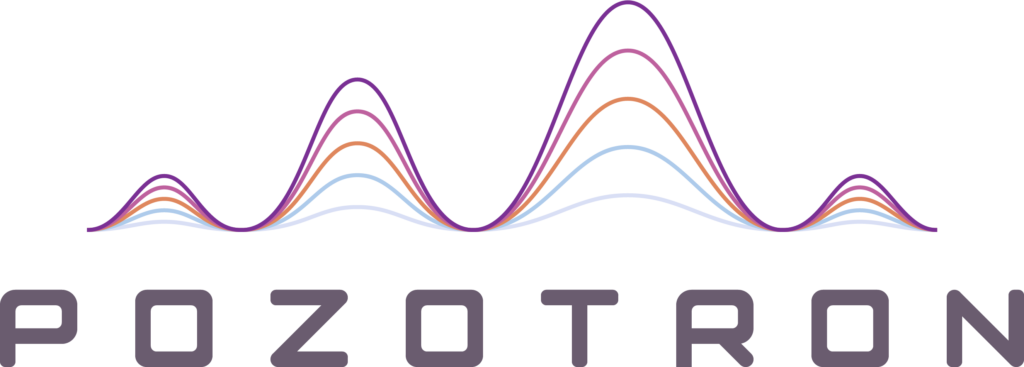Better productions by cutting out wasted effort

It can be difficult and time-consuming to learn new things as a way to get better at your craft. Writing, producing, directing, recording, editing – all the parts that go into publishing a creative project. There are always new techniques to learn, new boundaries to push and deeper details to pay more attention to. But a different way to approach improvement is by taking some time to cut back on things that you do already that might waste your time and energy.
There’s an acronym that can help you out – DOWNTIME.
- Defects
- Overproduction
- Waiting
- Non-utilisation of skills
- Transportation
- Inventory
- Motion
- Extra processing
You don’t have to memorise these, there are tons of online resources that you can reference – the same concept also goes by the name TIM WOODS. Moving through each of the letters in these acronyms can create huge improvements in your workflow. All you have to do is chip away at the things you already do. For some perspective, what if you found out that 90% of the time and energy you put into a publishing project was somehow wasted? You’d take a hard look at ways to reclaim that 90%. So let’s briefly go over those eight categories.
Defects, overproduction and waiting
Just asking yourself questions about each of these categories will help you plan your next project.
- What are errors that occur that require redoing work?
- Are there things that I make too much of?
- How often do people on my team have to wait for resources in order to complete their parts of a project?
And when you have answers, suddenly you have more questions, and you begin to see where small changes in your approach can make a big difference in the amount of time you spend in different stages of your workflow.
- How can I prevent these errors in the first place?
- Why am I making too many of these errors?
- Is there a better way to organise the workflow so that we can cut waiting down to zero?
Specifically in print and audiobook production, defects can come in the form of grammatical mistakes, script errors, recording pickups, inconsistent communication over different channels or specifications that aren’t clear.
And if you think about the cumulative amount of time people spend waiting – waiting for emails, phone calls, final files, schedules or file transfers – all of those things unnecessarily chew up hours and hours of time that could be better spent doing almost anything else!
In a small brainstorming session, your team can probably note almost every single predictable pain point in a project. Take note and be proactive in preventing the worst of it!
Non-utilisation of skills, transportation and inventory
There’s an incredible amount of waste in these three areas.
If people are good at some aspect of production, let them fly free! Use those talents! There’s often a push to try to make everyone do everything, or if someone has a weak link in their skill set, to make them practise it or be in charge of it somehow as a learning experience. If you really want to crush a project, find out what people are the best at and assign them to those roles. If you’re a project manager and you’ve never asked team members if they have specific skills or preferences, now is the time to do that! And when people are good at something, they will often be happier while they’re doing it, and they will do a better job because they’re doing something that they enjoy. It’s amazing how many times you can reach the end of a project, and then find out afterward that you had a team member who has a special skill that you didn’t utilise. Avoid this by opening up communication before a project even gets into the planning stages.
In the era of covid, transportation is an interesting consideration. It has to do with the idea of people or things being transported from one place to another. Do you need a person in a physical location that requires them to drive there, or are there alternatives? If there are physical objects or equipment that are part of your project, how can you most efficiently organise the movement of that stuff from where it is to where you need it? The point is to ask these questions early, because any project tickets waylaid by bad logistics when it comes to transportation will have a direct effect on the profitability of the project as a whole.
And inventory management might feel like it’s more of a topic for a factory or an office supply store, but it still makes sense to pay attention to it for a publishing or audiobook project. If you or any team member feels like you’re constantly getting things or moving things out of the way, it might be that you have a very small inventory problem. It could even mean you have too many devices around or too many computer screens for example. Minimising to get the right amount of inventory to avoid waste can be a very easy decision once you understand what aspects of inventory management might be getting in your way.
Motion and extra processing
The last two kinds of waste are motion and extra processing. Motion is exactly what it sounds like. When you’re producing a book or an audiobook, what physical actions do people perform? Is it something with keyboards or a mouse that you’re using or the distance that you have to walk from one area to another? Is there something about your booth that requires you to reach further than absolutely necessary? All of these small things together can be a huge time suck, which means doing a quick check and finding and making sure that the things that you need the most are within arm’s reach can make a big difference in your experience of creating an audiobook. Even something like how far away your water bottle is while you’re working can make a big difference over the course of 10, 20 or 30 hours.
Extra processing can be one of the places where any production team can have the most problems. There is a client expectation and there is an end user expectation. If you or any member of your team does anything, spends any money or gives more attention to details that end users or clients do not request or require, then that is all waste that directly affects your ability to profit off of a project. If everyone on the team understands exactly what the requirements are to finish a quality project, any effort that goes beyond those requirements, any effort that can be considered extra processing, should be eliminated. A classic example is if you have someone do a high-end mastering run on audio that doesn’t require it. You don’t necessarily need someone with $10,000 worth of equipment and 30 years of mastering experience to master an audiobook. There are plenty of programs now that get the job done to spec with very low cost and very little expertise required. Pay attention to these ways that you can get rid of extra processing, and you’ll find that a lot of this added waste is gone.
Contribute your stories and experiences
Is there anything that you can think of in past projects or current ones where the acronym DOWNTIME can help you save effort and energy? If so, feel free to share those experiences with your team and other people around you so that everyone can get better together when it comes to getting rid of the frustrating wasted time in production processes.
Ryan Hicks is the Director of Outreach at Pozotron, a software company that focuses on helping narrators and production houses use technology to save time at every step of the audio production process.






